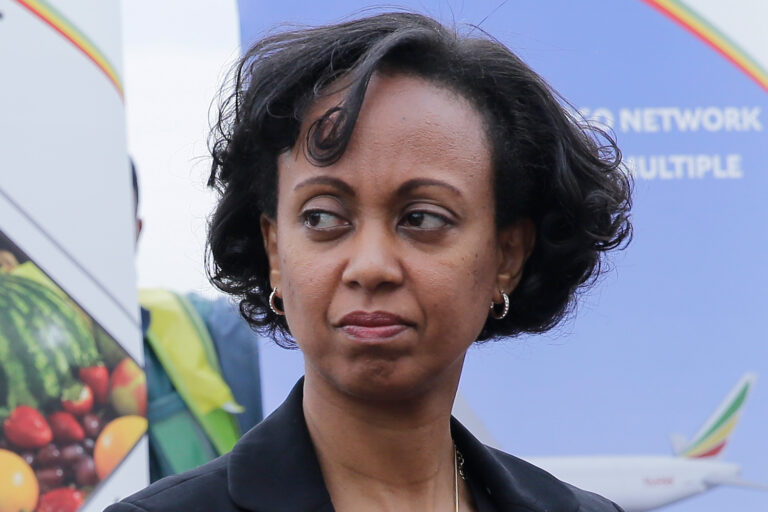Interview with Dr Lia Tadesse, Minister of Health, on the country’s COVID-19 testing experience (best practice) with World Health Organization (WHO)
Q: How is COVID-19 testing organized in Ethiopia?
Dr Lia Tadesse: COVID-19 testing is coordinated by the Ministry of Health and the Ethiopian Public Health Institute (EPHI) under the laboratory pillar which consists of four sections: laboratory logistics and supplies, COVID-19 test laboratory expansion and quality assurance; sample collection and reception; and laboratory data management.
Ethiopia has made notable strides in its testing capacity for COVID-19. While the initial samples were shipped to the Regional Reference Laboratory in South Africa (National Institute for Communicable Diseases -NICD), the country began testing on 8th February 2020 at the EPHI national influenza laboratory WHO Ethiopia worked with the national authorities to set up Real Time PCR molecular testing capacity by way of providing the first supplies of testing kits, consumables and capacity building to conduct COVID-19 testing, evaluation and validation. The capacity at the beginning was 200 tests per day. Over the response period, there has been a continuous effort to increase this capacity throughout the country
It became clear early in the response that there was a need to decentralize the testing capacity and identify additional sites. This began with an initial assessment of Regional laboratories, research and academic institutions, Public Health Institutes and referral hospitals across the country, to take stock of the existing laboratory testing capabilities and the additional support that would be required. Following this, the identified laboratories were capacitated specifically for COVID-19 testing, sample collection, transport, sample storage, waste management through in-person and virtual training conducted by the Ethiopian Public Health Institute and WHO. The capacity for testing has gradually increased. As of 22nd August 2020, over 50 laboratories are now testing for COVID-19 with 64 manual and automated PCR machines located in all 12 regions of the country.
In terms of how we target testing this has evolved over time. We initially started by screening for travelers coming from abroad then included suspected cases and contacts of all positive cases once the outbreak took hold in the country. We then expanded COVID-19 testing to in Influenza sentinel surveillance sites and high risk groups such as healthcare workers, drivers, prisoners, law enforcement agents, elderly persons, market people, airports/flight crews etc. to ensure that we are able to identify and isolate all cases. In addition, Ethiopia houses roughly 3.3 million combined population of refugees and IDPs across the country. Given the proximity the refugee camps to external borders, testing has also been expanded to include this population given the cross-border movements.
Q: What is the objective of ComBAT (Community-based Activities and Testing) strategy? How has it improved COVID-19 testing?
Dr Lia Tadesse: The recently rolled out campaign called ComBAT (Community-based activities and testing), has further enhanced testing capacity, with the objectives of further decentralizing surveillance and testing to district and woreda levels. It also aims to slow down the transmission by improving case detection, enhancing protection of frontline health care workers and protecting the poor as well as expanding risk communication and community engagement down to woreda levels. Each region is also expected to identify the most at risk and vulnerable populations to better target testing. As of 22nd August 2020, over 20,000 tests are being conducted daily and the results were submitted to the National Emergency Operating Center at EPHI.
Q: How many tests have been conducted in the country to date?
Dr Lia Tadesse: Cumulatively as of 23rd August 2020, 736,904 tests have been conducted in the country.
Q: How has WHO contributed to strengthening Ethiopia’s testing capacity?
Dr Lia Tadesse: As mentioned above, WHO capacitated selected laboratories for COVID-19 testing, sample collection, transport, sample storage, waste management through in-person and virtual training.
WHO is also supporting the process of External quality assessment (EQA) for testing conducted in Ethiopia, through transportation of positive and negative samples to the Regional Reference Laboratory at NICD, South Africa. Ethiopian laboratories are also taking part in continental EQA activities supported by WHO AFRO and Africa CDC. National External Quality Assurance panel distribution to all the laboratories have been undertaken.
The Ministry of Health recognizes WHO’s support to increasing capacity for testing in the country. With WHO support, the country has been able to procure and distribute sample collection VTM and Swabs, testing kits and consumables for COVID-19 diagnosis throughout the regions. There has been continuous capacity building for laboratory technicians, sample collectors, and their respective supervisors to ensure the reliability and accuracy of the testing. Forecasting and stock management at national and regional levels are also supported by the WHO colleagues working, with regular monitoring and reporting from the regions to the central level.
I am confident that WHO will continue to stand with us through technical and material support as we work to strengthen and improve our testing capacity.













